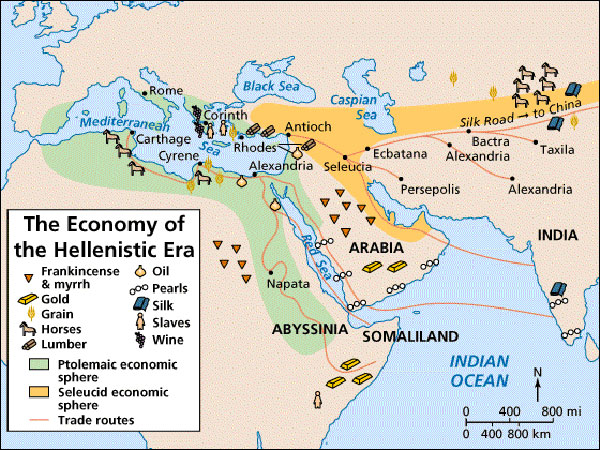By the fourth century BC, Greece was poised to enter its most triumphant period: the Hellenistic age. The word "Hellenistic" literally means "Greek-like." Alexander and his Macedonians did more than control territory; they actively exported Greek culture: politics, law, literature, philosophy, religion, and art. This was a new idea, exporting culture, and more than anything else this exporting of culture would deeply influence all the civilizations and cultures that would come later: the Romans, the Christians, and the Muslims.
Some reasons that Greek culture spread so quickly was that many scientists and philosophers had the appropriate leisure time and the financial backing of rich kings to investigate their interests. In addition, the extension of Greek culture into new lands that began with Alexander also brought the intellectual wealth of other civilizations, especially from Persia and Egypt, into wider currency. Finally, Greek was established as the universal language of culture across the known world. This promoted the spread of new ideas and helped standardize knowledge across different people groups.
![]() Click on the correct response below.
Click on the correct response below.
After Alexander's death in 323BCE, the empire was divided among his generals who encouraged the spread of Greek culture and ideas (Hellenism). Hellenism spread so quickly over such a vast empire because it was diffused along the trade routes. Cities such as Seleucia, Alexandria, and Persepolis received new ideas from the Greek world and developed them even more.

Source: Map of Hellenistic Economic Activity, Think Central
Using the map above, which of the following goods were traded across the greatest distance?